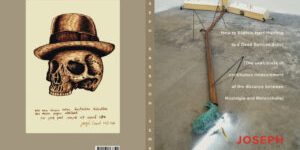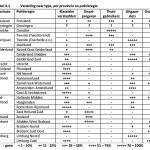It’s Just Not Relevant ~ Objective Truth
No comments yetIn 2015 Oxford Dictionaries chose the laughing face called ‘face with tears of joy’ (an emoji or ‘ideogram’ in internet communication) as its word of the year. The dictionary was not as upbeat this time around. The winner of 2016, ‘post-truth’, according to its definition relates to or denotes “circumstances in which objective facts are less influential in shaping public opinion than appeals to emotion and personal belief”. Doesn’t that call to mind Brexit and the US elections?
We are not talking here about a novel phenomenon. The Nation reminds us that the term ‘post-truth’ appeared in the magazine as early as 1992. Back then, Serbian-American author Steve Tesich was referring to the Iran-Contra affair of 1986, during which president of the US Reagan denied selling weapons to Iran in order to finance the Nicaraguan Contras.
According to Tesich “in a very fundamental way we, as a free people, have freely decided that we want to live in some post-truth world.“
Since then, Clinton has claimed not to have had sexual relations with that woman, Tony Blair has justified the war against Iraq by lying about Iraq’s supposed possession of weapons of mass destruction, and president Trump has denied climate change. It is not so much that objective truth does not exist, as indeed the postmodernists claim, because it does: it’s just not relevant.
You might expect such an absurd situation to occur only in unfree countries, such as the fictional country from George Orwell’s 1984, where citizens are forced to accept two truths through ‘double-think’. Or the Soviet Union, where, according to Alexei Yurchak, associate professor at Berkeley, hypernormalization was the norm: everyone was aware of the system’s failure, but for lack of a more hopeful outlook, both apparatchiks and citizens collectively pretended it was working normally. This period gave us the following proverb: “We pretend to work, and they pretend to pay us”.
Is the free west heading for a similar mock democracy, where the lying leader pretends to be right and the citizen pretends to vote for the politician he or she really wants? In this modern form of hypernormalization, Trump’s or Farage’s lies don’t serve to conceal the truth, but rather to strengthen prejudices.
The Netherlands also doesn’t seem to be able to combat lying politicians through fact-checking. According to professor Paul Frissen we must look for new political stories, all about “solidarity in a historically grounded future”. He is right: we are lacking in imagination. You don’t dismantle lies with facts, you dismantle them with vision.
Farid Tabarki is the founding director of Studio Zeitgeist
You May Also Like
Comments
Leave a Reply






